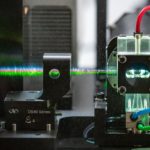Link to Pubmed [PMID] – 24960609
PLoS Biol. 2014 Jun;12(6):e1001895
The Wnt receptor Ryk is an evolutionary-conserved protein important during neuronal differentiation through several mechanisms, including γ-secretase cleavage and nuclear translocation of its intracellular domain (Ryk-ICD). Although the Wnt pathway may be neuroprotective, the role of Ryk in neurodegenerative disease remains unknown. We found that Ryk is up-regulated in neurons expressing mutant huntingtin (HTT) in several models of Huntington’s disease (HD). Further investigation in Caenorhabditis elegans and mouse striatal cell models of HD provided a model in which the early-stage increase of Ryk promotes neuronal dysfunction by repressing the neuroprotective activity of the longevity-promoting factor FOXO through a noncanonical mechanism that implicates the Ryk-ICD fragment and its binding to the FOXO co-factor β-catenin. The Ryk-ICD fragment suppressed neuroprotection by lin-18/Ryk loss-of-function in expanded-polyQ nematodes, repressed FOXO transcriptional activity, and abolished β-catenin protection of mutant htt striatal cells against cell death vulnerability. Additionally, Ryk-ICD was increased in the nucleus of mutant htt cells, and reducing γ-secretase PS1 levels compensated for the cytotoxicity of full-length Ryk in these cells. These findings reveal that the Ryk-ICD pathway may impair FOXO protective activity in mutant polyglutamine neurons, suggesting that neurons are unable to efficiently maintain function and resist disease from the earliest phases of the pathogenic process in HD.

